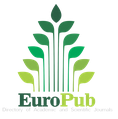Exploring the expatriates’ intention to send surgical masks to their native countries during the COVID-19 pandemic: an empirical study in Taiwan
Keywords:
Fear, Knowledge, Perceived scarcity, surgical masks, Theory of Reasoned Action (TRA), Risk perception, Personal protective equipment (PPE), COVID-19Abstract
The main purpose of this study is to gain a better understanding of the factors that determine behavioral intention of expatiates living in Taiwan to send surgical masks to their native country during Covid-19 outbreak. To achieve this, the study builds a research model by extending Theory of Reasoned Action (TRA) with Knowledge-Attitude-Behavior (KAB) and Risk Perception-Attitude (RPA) frameworks incorporating Covid-19 related factors such as knowledge, fear, and risk perception and situational factors such as perceived mask scarcity. An online questionnaire was administered with 83 respondents participating. A partial least squares structural equation modeling (PLS-SEM) analysis was used to evaluate the collected data. Our results differ from previous literature as well as our expectations because we found that no significant relationship between both Covid-19 risk perception, and fear and expatiates’ attitudes to send surgical masks back home. Results further reveal that Covid-19 knowledge is the only factor that significantly influence expatriates’ attitudes, which in turn impact their on the intention to send surgical masks to their native countries. Perceived mask scarcity found to positively moderate relationship between attitude and intention. This study contributes to the growing body of literature and research focused on the Covid-19 pandemic, and offers some implications for future research on the correlations between knowledge and scarcity in the context of the theory of reasoned action. Although the current study examines a contemporary critical issue, it presents a key example of personal protective equipment (PPE). We believe that findings of this study offer useful implications for businesses and researchers in their field of work.
Downloads
Posted
Versions
- 2021-01-11 (2)
- 2021-01-07 (1)
License
Copyright (c) 2021 Paulo Cesar Chagas Rodrigues; Rushikesh Ulhas Khire, Adam Edward Bell, Schreiber Wiebke, Chun Wang

This work is licensed under a Creative Commons Attribution-NonCommercial-ShareAlike 4.0 International License.







